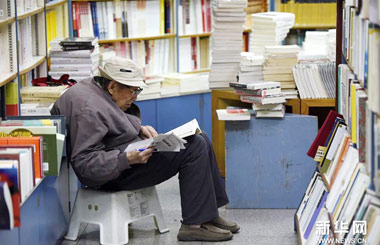China's Position Paper on the Implementation of the 2030 Agenda for Sustainable Development
Updated: 2016-04-26 10:14
(chinadaily.com.cn)
|
||||||||
III. Means of Implementation
-Strengthen Capacity Building. The national government should take primary responsibility for its development. It is important to align national development strategies with the implementation of the 2030 Agenda, making them mutually reinforcing. Countries should formulate development-oriented policies, improve institution building, increase public resources, accelerate technological innovation, encourage participation of all sectors in development and generate internal growth momentum. The United Nations and its specialized agencies should help the member states improve their capabilities to implement the 2030 Agenda.
-Create An Enabling International Environment for Development. Countries should pursue peaceful development and work together to maintain regional stability and world peace and security. It is important for all countries to promote a balanced, win-win and inclusive multilateral trading system and form a fair, reasonable and transparent system of international economic and trading rules, and promote rational flow of production factors, efficient allocation of resources and deep integration of markets. Efforts should also be made to improve global economic governance, support equal participation of developing countries and increase their representation and voice, as well as their full participation in the global supply chain, industry chain and value chain.
-Strengthen Development Partnership. The international community should work towards a more equitable and balanced global partnership for development and maintain North-South cooperation as the main channel for development cooperation. Developed countries should honor their Official Development Assistance (ODA) commitments in a timely and adequate manner, scale up their support in terms of capital, technology and capacity building for developing countries, especially African countries, the least developed countries and small-island developing countries. It is important to give full play to technology promotion mechanism, promote technology development of developing countries and the transfer, spread and promotion of environment-friendly technology to developing countries. The international community should also strengthen South-South cooperation, increase triangular cooperation, and encourage the private sector, civil society, philanthropic groups and other stakeholders to play bigger role. Efforts should be made to strengthen infrastructure connectivity and international cooperation in industrial capacity to achieve complementarity among countries.
-Promote Coordination Mechanism. Development policy should be incorporated into global macroeconomic policy coordination to make international economic, financial, trade and investment policies serve development and to ensure developing countries' extensive engagement in the global economic governance and their fair share of development gains. Efforts should be made to accelerate regional integration and enhance comprehensive regional competitiveness. The role of the United Nations in policy guidance and coordination should be strengthened, and the UN development system, specialized agencies, funds and programs should enhance development resources and use their own advantages to promote the implementation of the 2030 Agenda and advance international development cooperation according to their authorization. G20 members are encouraged to formulate a meaningful and executable collective action plan for implementation of the 2030 Agenda, so as to play a leading role in the implementation and complement to the UN process.
-Improve Follow-up and Review. The UN High-Level Political Forum should play a key role in the follow-up and review, and conduct regular reviews of global implementation progress. It will be imperative to strengthen the monitoring of the means of implementation at the international level, comprehensively review the development financing, technology transfer and capacity building with a focus on the ODA commitments. Regional cooperation should be encouraged, as well as participation by regional and subregional commissions and organizations. National reviews should be conducted within the national policy framework and maintain its flexibility so that the review of national implementation would be done according to respective national conditions and the principle of voluntary action. The formulation of SDGs indicator framework should adhere to the principle of "common but differentiated responsibilities" and efforts should be made to strengthen statistical capacity building in developing countries and improve the quality and timeliness of statistical data.

 The world in photos: April 18- April 24
The world in photos: April 18- April 24
 People have fun in pillow fight held in Kiev
People have fun in pillow fight held in Kiev
 Laotian wives in East China's Anhui province
Laotian wives in East China's Anhui province
 Couples get married in their 'birthday suit'
Couples get married in their 'birthday suit'
 Teenagers play Chinese instrument Zheng in Hubei
Teenagers play Chinese instrument Zheng in Hubei
 In pics: Top 10 richest cities in China
In pics: Top 10 richest cities in China
 Readers at a 24-hour bookstore in Beijing
Readers at a 24-hour bookstore in Beijing
 Flame for Rio Olympics lit in ancient Greek ruins
Flame for Rio Olympics lit in ancient Greek ruins
Most Viewed
Editor's Picks

|

|

|

|

|

|
Today's Top News
Liang avoids jail in shooting death
China's finance minister addresses ratings downgrade
Duke alumni visit Chinese Embassy
Marriott unlikely to top Anbang offer for Starwood: Observers
Chinese biopharma debuts on Nasdaq
What ends Jeb Bush's White House hopes
Investigation for Nicolas's campaign
Will US-ASEAN meeting be good for region?
US Weekly

|

|







